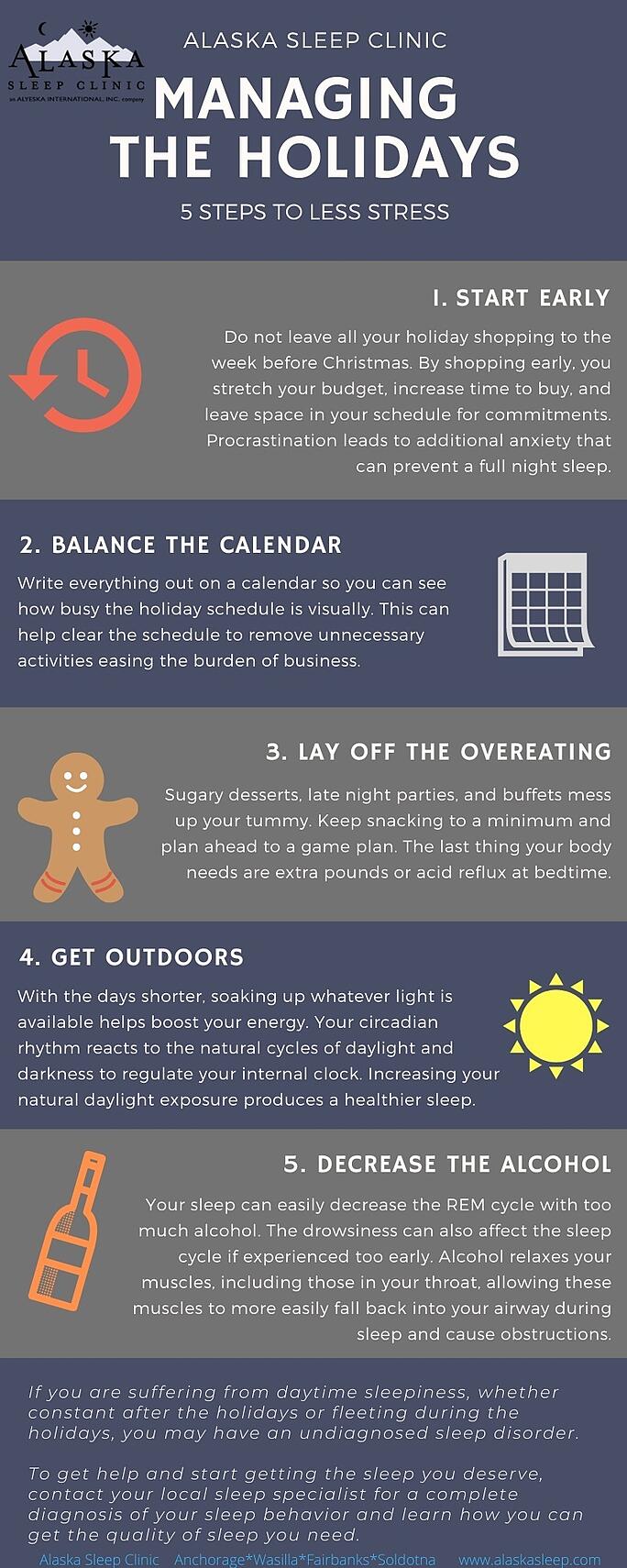Healthy Ageing – Habits for Each Decades of Life
We here at Alaska Sleep Clinic are honored we were asked to contribute to AGE UK Mobility’s recent article on how sleep affects people of different ages.
The article “Healthy Ageing – different life habits for different decades in your life,” featuring Alaska Sleep Clinic has now gone live. Here is an excerpt:
In your 60s:
The sixth decade of your life is when many people retire and therefore have more time on their hands. It is also a time when your body undergoes changes with many people’s metabolism beginning to slow down.
Kathy Marris from 50 Shades of Age says life really changes in your sixties, “Most older people’s lifestyle will change dramatically in their sixties, once dependent children have left home, home mortgages have been paid off and they’re starting to think about retiring from work. The first big one is the financial impact that occurs when you no longer have to support children, pay school fees nor make mortgage repayments. This relieves financial pressure immensely and leaves more money to be spent on things like travel, pursuing hobbies or renovating homes.”
Kathy goes onto say that following retirement after the age of 65, retirees that have planned their financial future well, may start to spend the kid’s inheritance by travelling the world while others will downsize their homes.
Your sleep pattern changes
Another noticeable change that often starts to begin in your 60s is your sleep pattern changes. There have been studies by the likes of the American Thoracic Society (ATS) showing that as a person ages the prevalence of sleep apnoea increases with a 3.2% prevalence in men 20-44 years old compared to 18.1% prevalence in men 61-100 years old.
Jennifer Hines, the lead marketer at Alaska Sleep Clinic, adds, “Sleep disorders and troubles increase with age, and more than 50% of adults 65 and up have some form of chronic sleep-related complaints, including difficulty falling asleep, trouble maintaining sleep, and the total amount of nightly sleep.
“The reasons for a higher prevalence of sleep apnoea in the elderly is believed to be caused by increased fatty deposits in the parapharyngeal area (areas in the head and neck), lengthening of the soft palate, and changes in body structures surrounding the pharynx. Post-menopausal women not on hormone replacement therapy also run a higher risk of developing sleep apnoea.”
Dr Katherine Rasmussen, a director at Centre for Sleep, says that there is no change in the absolute need for sleep in your later years, with the National Sleep Foundation stating adults 65 years of age and over need between 7 to 8 hours.
“As we age, our sleep becomes more fragmented. We experience increased light sleep, decreased slow-wave or ‘deep sleep’ and reduced REM sleep or ‘dream sleep’. We also tend to sleep more during the day.
“Other factors that change include our circadian rhythms which regulate the timing of our bodily functions such as our core body temperature during the night, as well as, our sleep. Older people tend to go to bed earlier and wake up earlier in the morning and this pattern is called ‘advanced phase shift’. One of the reasons for this is that melatonin the ‘sleep hormone’ which causes sleepiness is secreted earlier in the evening.”
Sam, a sleep expert from Sleep Kick, also explains some changes people experience with their sleep as they get older:
“A weaker bladder means older adults tend to wake up more often. The effects of some commonly taken medications and existing medical conditions also cause broken sleep. Broken sleep results in less time in bed actually spent asleep and is spent tossing and turning.
“There is a reduction in the quality of deep sleep in older adults due to a change in certain sleep-brain waves. Many of the restorative processes of sleep, both physical and mental, occur in deep sleep. As such, older adults can wake to feel unrested.”
Below are some tips to help you sleep:
- Routine – Rise and retire at the same time daily as it is the best way to reset your biological clock.
- Morning light – This strengthens your circadian rhythms and it boosts serotonin the “feel-good” hormone, as well as suppresses melatonin during the day so that you will feel more alert.
- Avoid caffeine – It is a stimulant and stays in your system for hours. Caffeine stops the neurotransmitter adenosine working. Adenosine would normally tell your brain that you are tired and it’s time to slow down.
- Avoid alcohol – Drinking alcohol will result in you waking up, feeling unrested.
- Daily physical activity – Find an enjoyable activity, exercise class or consider working out with a friend.
- Avoid using technology before bed – phones, tablets or TVs. These screens emit blue light which your brain perceives as daylight. This delays the release of the sleep hormone, melatonin, and so stops you sleeping.
- Get comfortable – Older adults can suffer from aches and pains which can keep you awake at night. Try to spend some time during the day getting some light exercise, such as walking, and if you can manage it, some stretching.
- Wind down with a pre-sleep routine two hours before bedtime – Engage in calming activities outside the bedroom, in dim lighting.
You can see the article in its entirety here:
No matter your age, if you live in Alaska and have sleep troubles, call ASC today for your free consultation. And, sign up for our daily sleep blog here.





